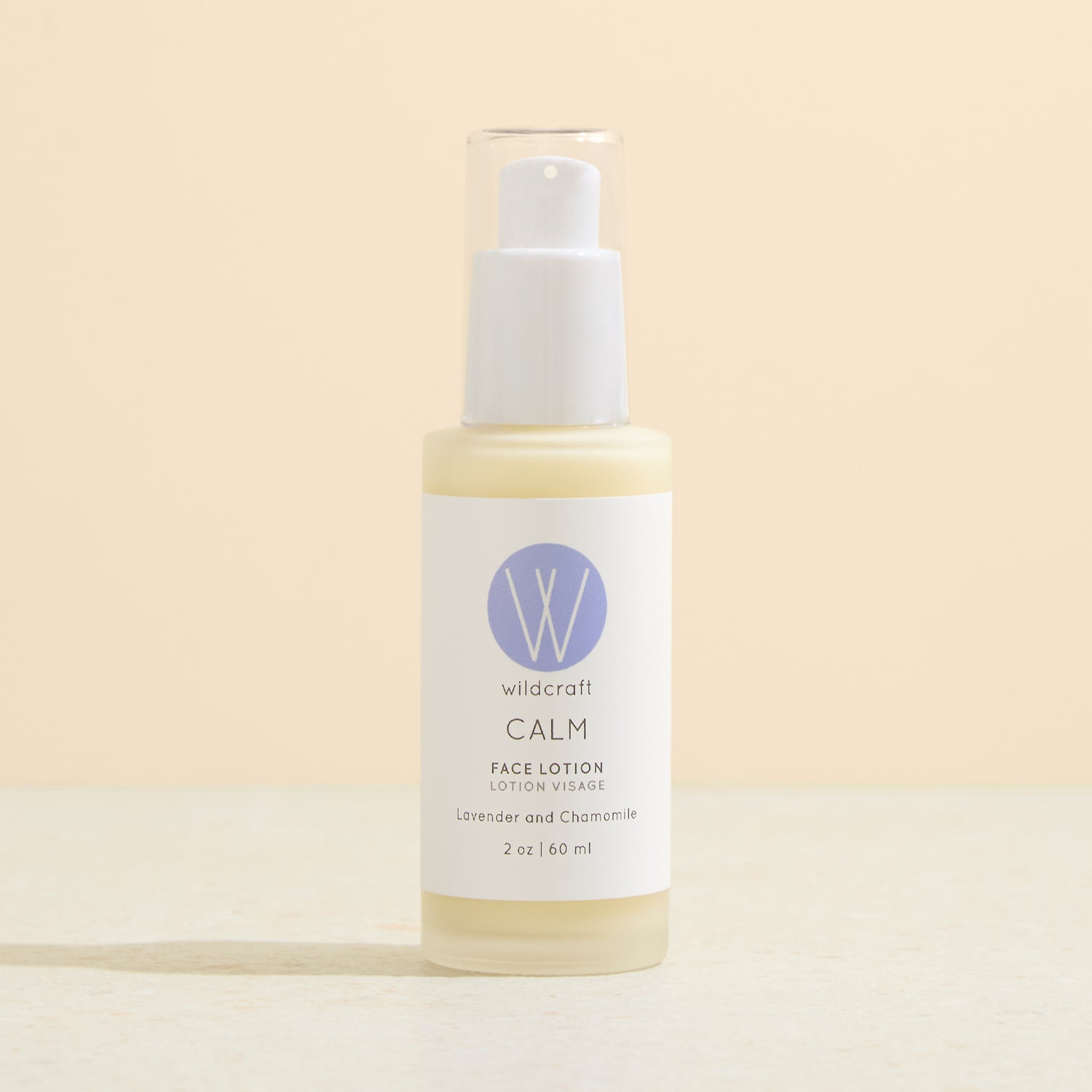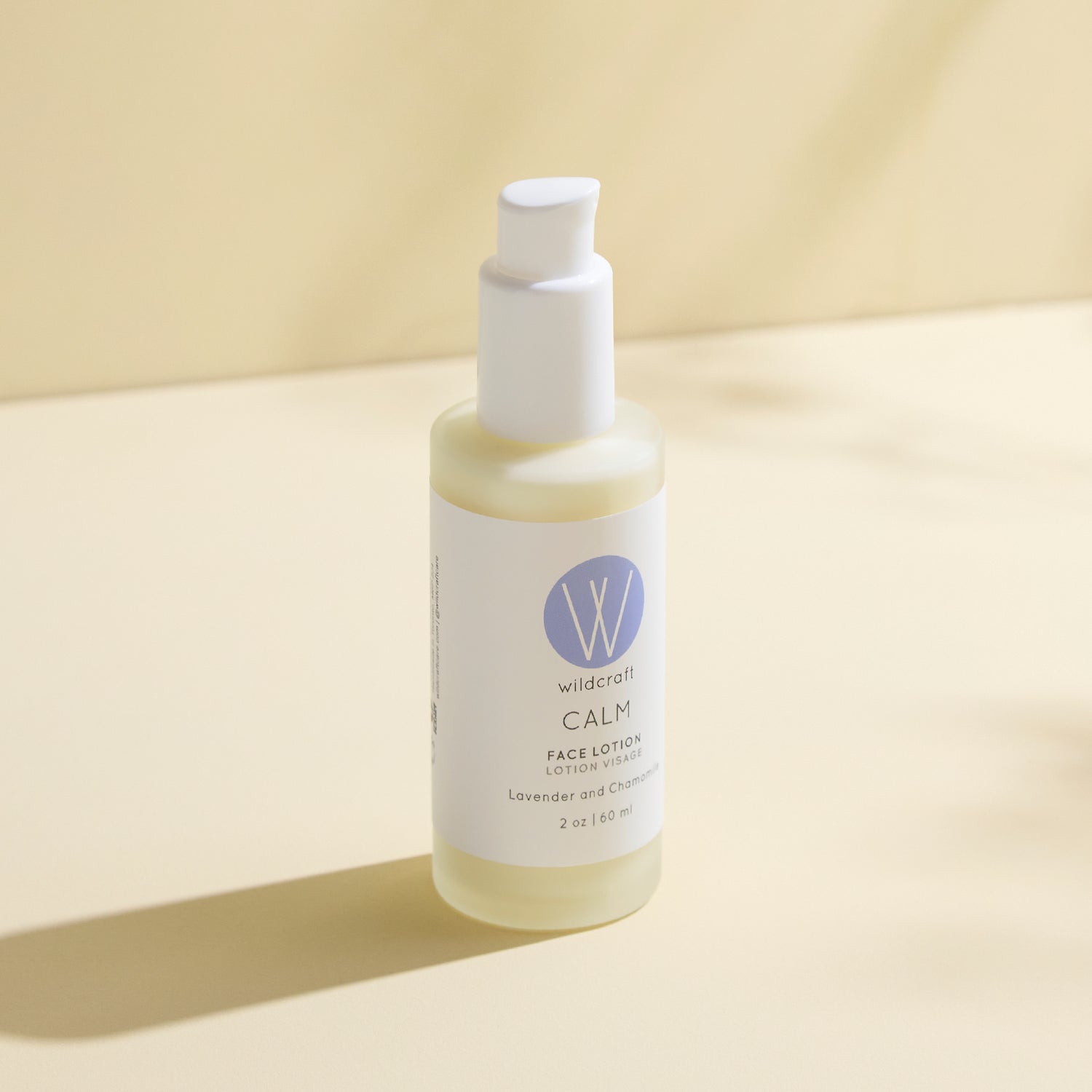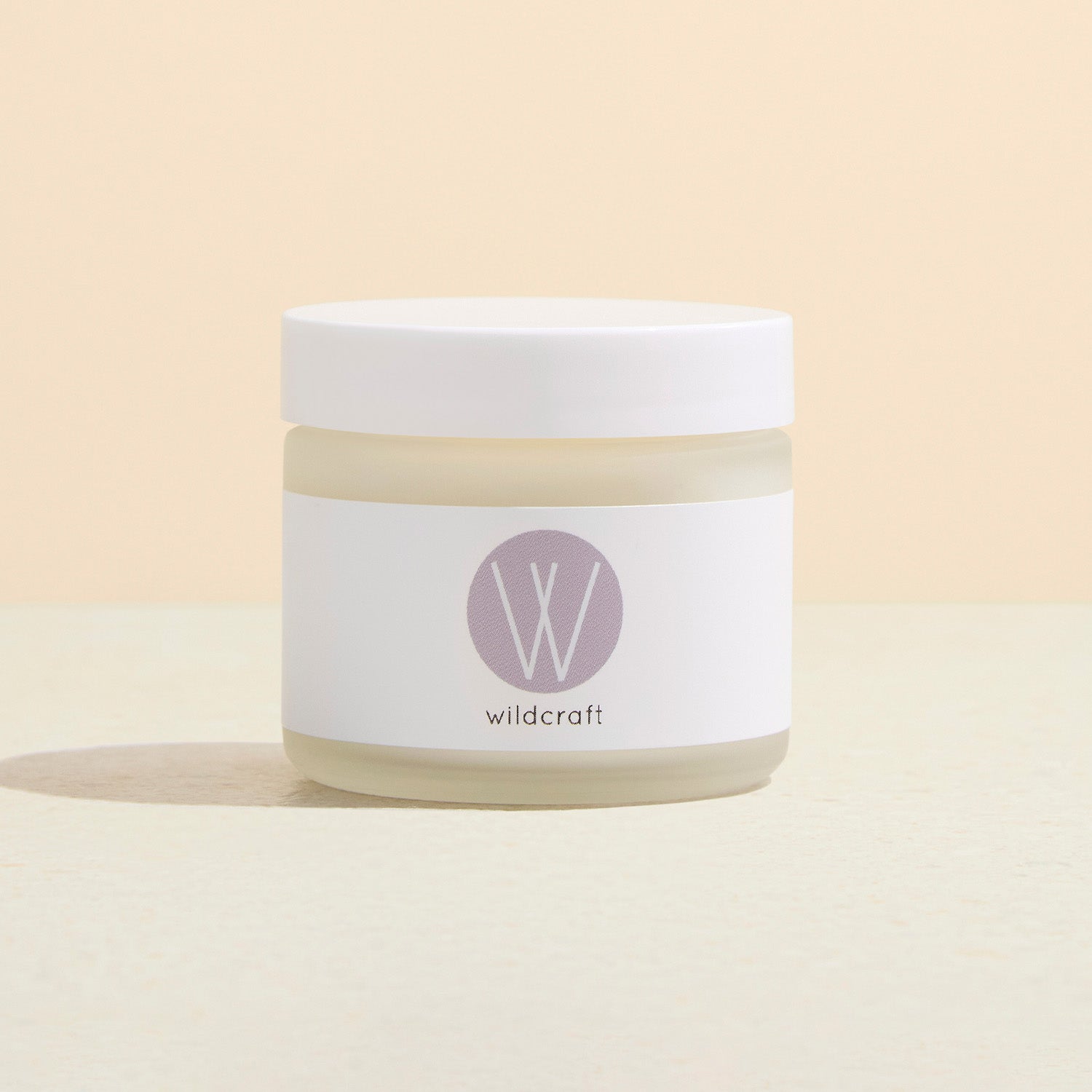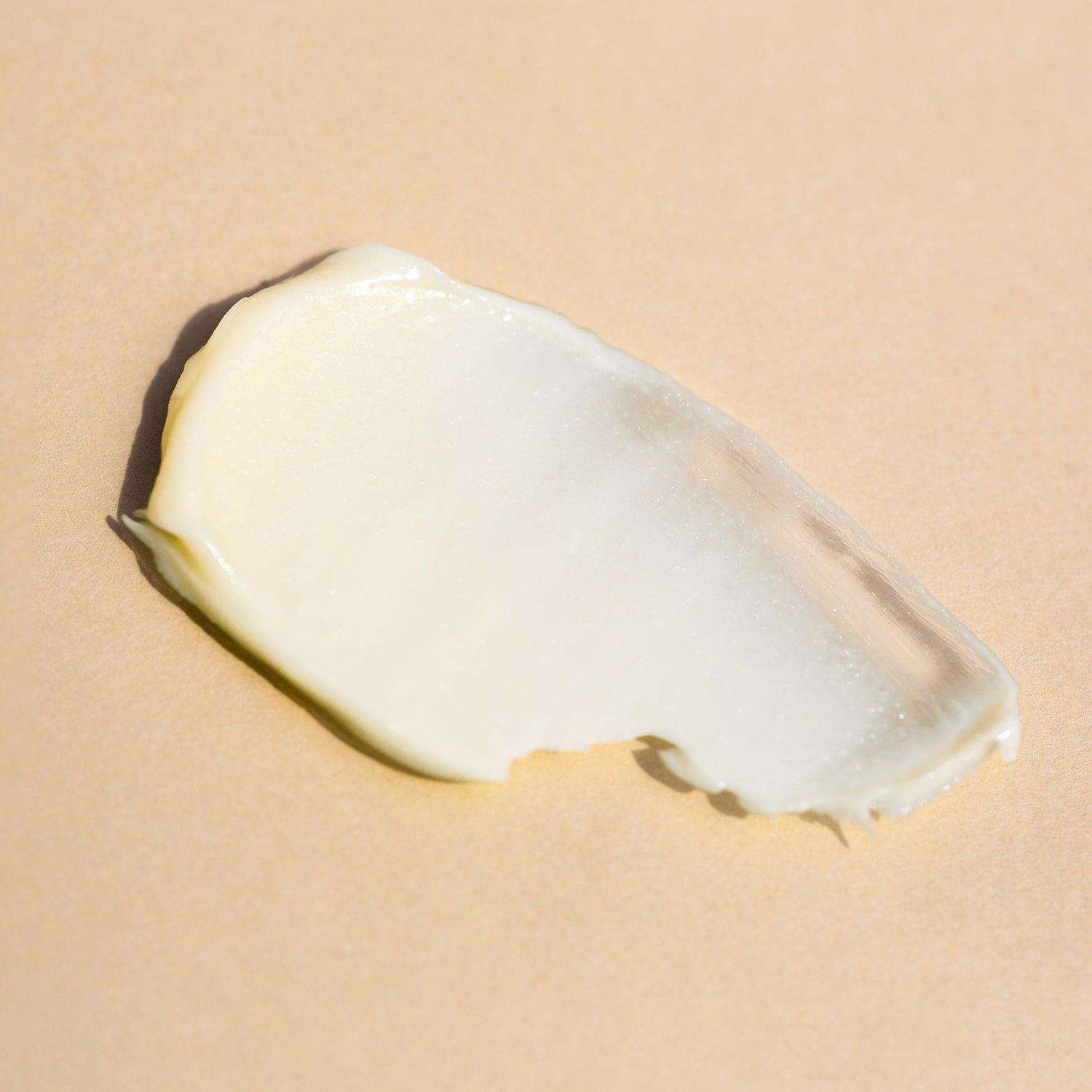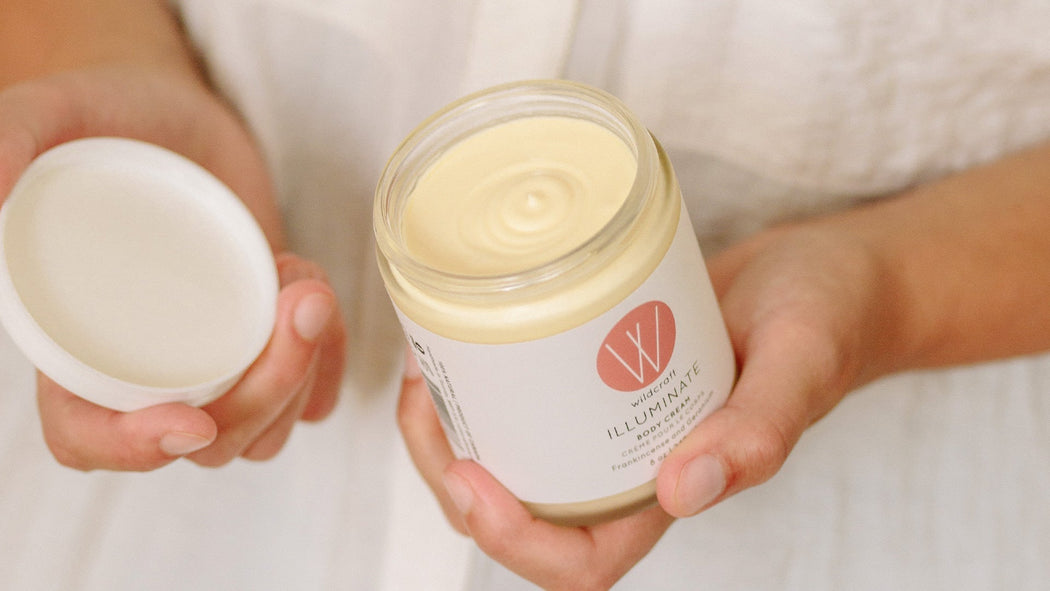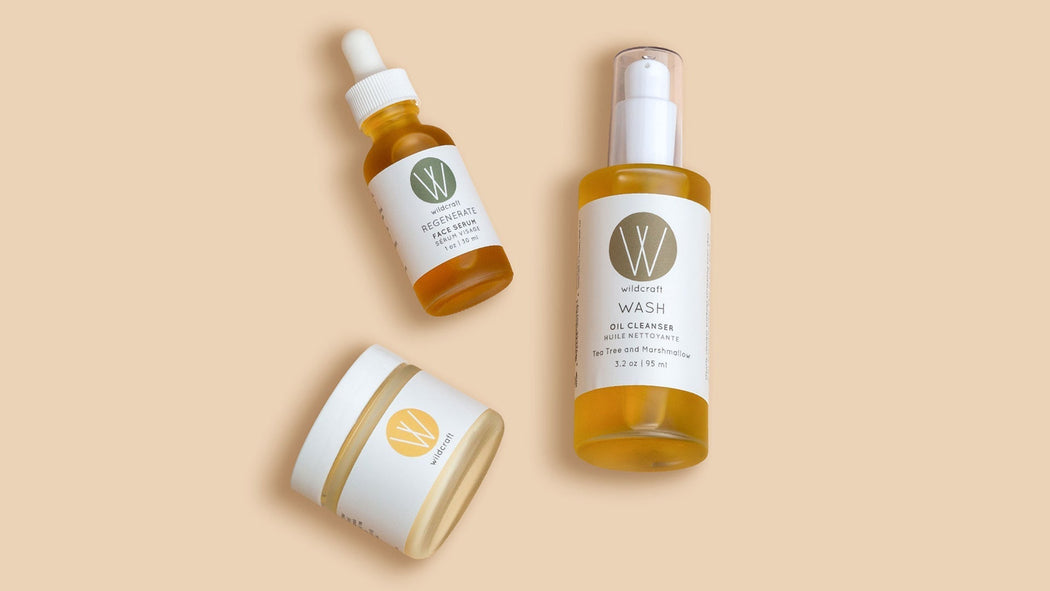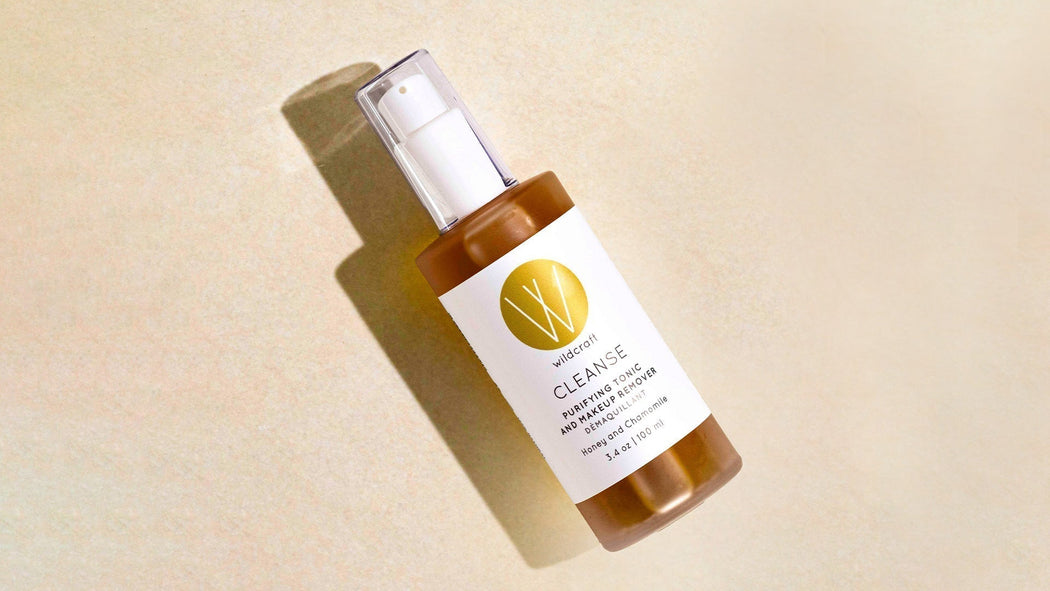What Are Essential Oils
By Bianca Garfias, Certified Aromatherapist.
Essential oils are an integral part of our skincare formulations here at Wildcraft. Today on the journal we’re sharing with you what they are and what makes them so beneficial to your skincare routine. We’re also answering frequently asked questions and addressing everything from how much to use (hint: less is always more) and other safety precautions to consider.
What are essential oils?
Packed with therapeutic and medicinal qualities, essential oils are highly concentrated and aromatic compounds that help to benefit your skin and overall wellness. They are derived from various sources in nature, including leaves, flowers, plants, fruit peel, bark and resin, and are most commonly extracted by steam distillation.
Because it can take a lot of the natural source to produce an essential oil, often times they can be very expensive. In order to bring the price down, many sources will boost the oils with other materials, thus making them less expensive but not 100% pure. It is therefore really important to do your research so that you know exactly where your oils are coming from, and are not adulterated in any way. Thankfully we have Nat, our head of formulations, dedicated to sourcing nothing but 100% pure essential oils for Wildcraft’s creations. Read more about how we create products here.

Why and how do we use essential oils?
A lot of essential oils have incredible skin benefits, some of which include hydrating, soothing and balancing oil production. A couple of favourites that we often use at Wildcraft are lavender essential oil to soothe irritation and inflammation (try our Calm Face Lotion), and bergamot essential oil (used in our Clarify Face Cream), which is antibacterial and astringent to help balance the skin. Essential oils also add a lovely, subtle scent and the aromatherapy properties are always an added bonus.
But remember: less is more. We always formulate our face products with sensitive skin in mind and are careful to use low dilution rates to avoid over exposure. However, if your skin is super sensitive or if you are allergic to an ingredient, there can still be a reaction (though not necessarily to the essential oil). When formulating, we also ensure that we use essential oils that are safe for topical application. Please note that there are many essential oils that are not suitable for the skin, so it’s always important to know which ones are included in a product. This is why it’s important to look at the ingredients before purchasing. Full ingredient lists can always be found on the pages for our products.
Every product that we produce is created to target a certain skin type or concern so we are constantly researching and experimenting to see what works best and from the most reputable sources. While there are ‘trendy and exotic’ oils out there, we prefer to stick with the tried and true classic ingredients that we know are effective without costing more.

Using essential oils safely
These oils pack a punch! In order to ensure safe usage, here are a few tips to consider and follow for best results:
- Always make sure to dilute your essential oil with a carrier oil (we recommend Jojoba oil as a great go-to).
- Never apply an essential oil straight on to the skin as it can lead to redness, irritation and sensitization.
- Never ingest essential oils. They are very powerful and not meant to be consumed.
- If using a diffuser, 15-20 minute intervals is the best length of time, up to two times a day.
- The aromatic essences are a great and soothing way to end your day, but be sure to think about your furry, four-legged friends as there are essential oils that aren’t safe for animals and can have serious, adverse effects.
- Be aware that citrus essential oils (orange, lime, lemon, grapefruit, etc.) are considered phototoxic, which means that your skin can burn more easily when in the sun. Rest assured that the bergamot essential oil is bergaptene free (FCF), so you don’t have to worry about phototoxicity after sun exposure with our products.
- Essential oils should never be used to replace medical treatments in your health regime.
- Lastly, if you still have questions or are unsure about anything, the best course of action is to seek advice from your family doctor as they will know if essential oils should be avoided on your skin.
Essential oils play a powerful and effective part when it comes to natural skincare, with multitudes of benefits. As always, we welcome all of your feedback and any other questions you might have regarding these little drops of goodness and hope that you love them as much as we do!

